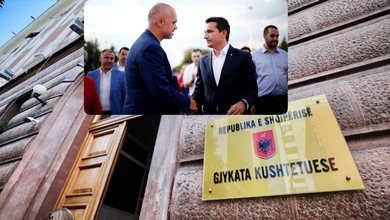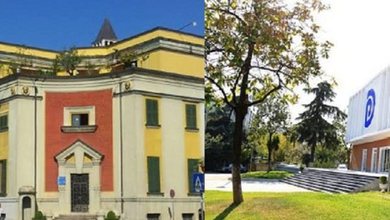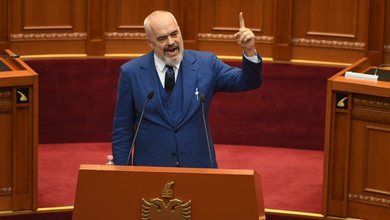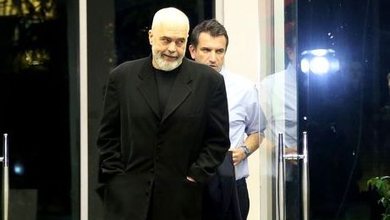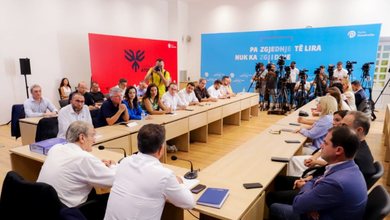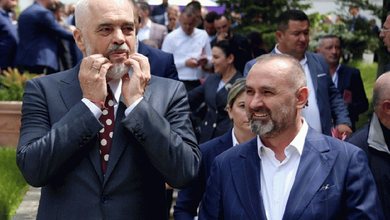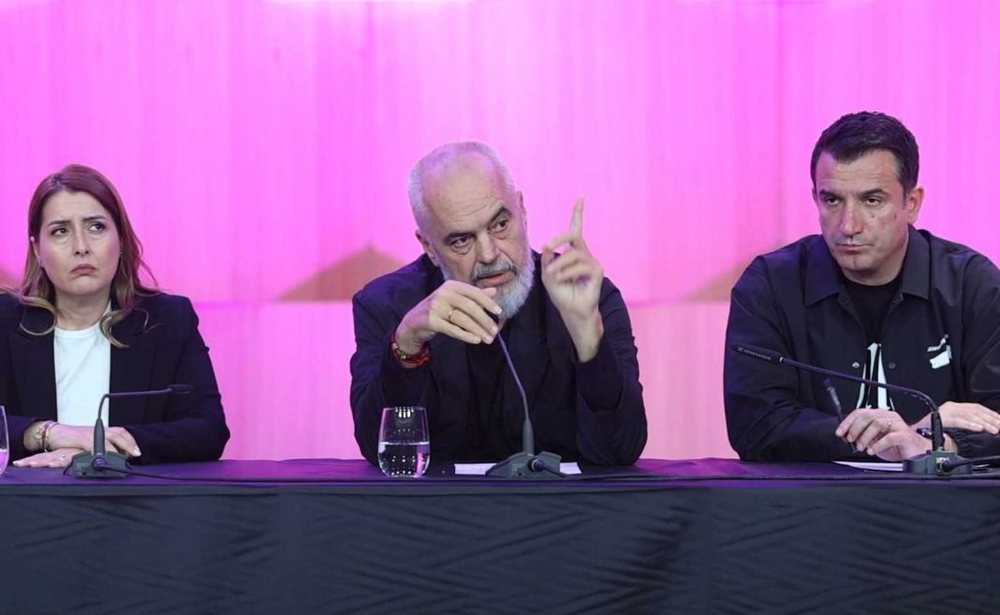
In Albania, few political figures have managed to turn submission to the leader into an art form like Erion Veliaj and, more recently, Ogerta Manastirliu. Both, in different ways, are products of the same political laboratory that bears the signature of Edi Rama — a laboratory that does not produce candidates with an identity, but rather devout spokespeople for the party line and the cult of the leader. In Rama’s latest podcast, Manastirliu spoke not as the SP candidate for the capital, but as the successor to a model started by Veliaj: the model of “trust”, of “call to duty” and of the candidate who, before responding to the citizens, thanks the leader who elected him.
A story that begins in a van
“I knew Edi Rama as the culture minister… he intrigued me because he was not like the others,” Manastirliu recounts on the podcast, in the tone of someone remembering a meeting that changed everything. “I got into the van and that’s where my journey began.”
In politics, it’s rare for a candidate to idealize their leader with such devotion. But in Albania, this is no longer the exception – it’s a rite of passage.
In this “symbolic van,” Rama appears as the protagonist who discovers, shapes and inspires. Manastirliu is the witness who accepts the “call to duty.”
From Veliaj to Manastirliu: same sounds, different voice
Anyone who listened to Erion Veliaj in 2015 knows this score well. He too spoke of Rama as the man who “inspired him,” who “gave him the vision,” and who “helped him see beyond himself.” At every inauguration, in every speech, Veliaj thanked “the boss,” mentioned “the dream he started,” and presented the Municipality of Tirana as a project under joint ownership: Rama’s and his.
Manastirliu was not as theatrical on the podcast, but she is more profound in the language of devotion. She does not glorify Rama as an artistic inspiration – but as an inclusive, almost savior figure. “My story is a story of faith from you,” she tells him on the podcast, in a tone that belongs not to a political conversation but to a personal narrative.
The theater of a relationship
The podcast functioned like a melodramatic theatrical scene, with Rama playing the role of mentor and Manastirliu the disciple. There was no debate, no challenging questions – there were memories, emotions, and a dialogue that aimed to transform politics into sentiment.
When Rama calls her “the girl who made me proud as health minister,” it sounds like a public blessing. When Manastirliu responds “you entrusted me with an unimaginable task,” it sounds like an oath. And so, the candidate’s personal story becomes an instrument of a larger narrative: to show that every name that emerges from the party is not a product of civic choice, but of merit within a hierarchy.
Tirana as a test of loyalty
In the end, this podcast did not speak to the citizens about Tirana – but to Rama about himself. It was an act of self-affirmation for the power structure he has built: a model where figures do not compete, but testify.
Veliaj did this loudly, with energy and spectacle. We all know the end. And perhaps that is why Manastirliu appeared today in a soft tone, with humility and gratitude. Although the message remains the same: in this system, loyalty is more valuable than the idea; gratitude stronger than autonomy; and the “call to duty” more important than the vote.
In a country where politics is done through narratives of loyalty, Tirana remains a setting – a stage where praise is exchanged, not ideas. And in that van that started the journey, Rama is no longer the minister of culture – but the author of every scenario where the protagonists are aware: their story begins and ends with him.



